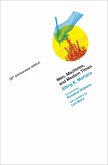A new approach to safety, based on systems thinking, that is more effective, less costly, and easier to use than current techniques. Engineering has experienced a technological revolution, but the basic engineering techniques applied in safety and reliability engineering, created in a simpler, analog world, have changed very little over the years. In this groundbreaking book, Nancy Leveson proposes a new approach to safety—more suited to today's complex, sociotechnical, software-intensive world—based on modern systems thinking and systems theory. Revisiting and updating ideas pioneered by 1950s aerospace engineers in their System Safety concept, and testing her new model extensively on real-world examples, Leveson has created a new approach to safety that is more effective, less expensive, and easier to use than current techniques. Arguing that traditional models of causality are inadequate, Leveson presents a new, extended model of causation (Systems-Theoretic Accident Model and Processes, or STAMP), then shows how the new model can be used to create techniques for system safety engineering, including accident analysis, hazard analysis, system design, safety in operations, and management of safety-critical systems. She applies the new techniques to real-world events including the friendly-fire loss of a U.S. Blackhawk helicopter in the first Gulf War; the Vioxx recall; the U.S. Navy SUBSAFE program; and the bacterial contamination of a public water supply in a Canadian town. Leveson's approach is relevant even beyond safety engineering, offering techniques for "reengineering” any large sociotechnical system to improve safety and manage risk.
Hinweis: Dieser Artikel kann nur an eine deutsche Lieferadresse ausgeliefert werden.
Hinweis: Dieser Artikel kann nur an eine deutsche Lieferadresse ausgeliefert werden.








